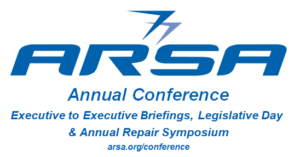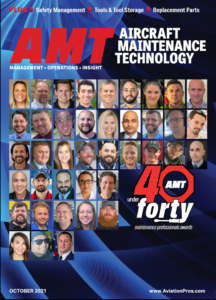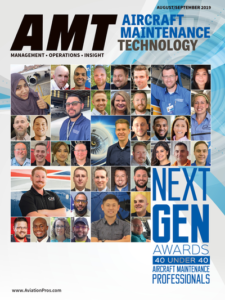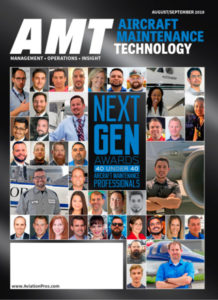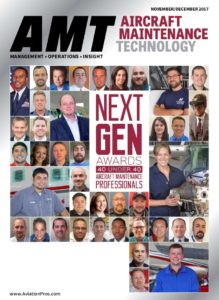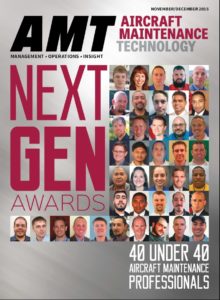2022 – Edition 1 – February 4
Table of Contents
Note: The order of material varies in hotline emails, but is always presented the same on this landing page. Readers scrolling through content on or printing this page will find it organized consistent with the table of contents.
Sarah Says
Anti-Viral Measures
ARSA Works
Conference Corner
Legal Brief
ARSA on the Hill
Regulatory Update
Training
Membership
Resources
Industry Calendar
Sarah Says
Show it Matters
By Sarah MacLeod, Executive Director
Showing up is important.
Yes, we can lament that in-person meetings are “better,” and networking through a Zoom screen is impossible (who believes the “chats” are private?). The bottom line is no matter the media, learning, communicating, and, yes, even oversight can be done through use of remote technology.
The association’s Annual Conference ensures that at least once a year, the international maintenance industry can listen to and talk directly with leading aviation safety agencies. The “talk” may be through electronic and electrical pulses that few understand (thank you 5G providers), but it is available, useful, usable, and fruitful.
The ARSA team has been encouraged to use remote technology since the advent of “personal digital assistants” (anyone remember Blackberry?). We recognized that individuals determined to accomplish tasks work better when provided an opportunity to apply their capabilities in their own time. Of course, the teams’ tasks are accomplished through visual, written, and spoken capabilities – there are very few “hands-on” requirements.
Ironically, even though governments worldwide have recognized “modern” technology in general, civil aviation authorities reluctantly and recalcitrantly capitulate to its use. ARSA began advocating the use of remote technology for tasks that depended upon visual acumen or oversight in 2018. The FAA Aircraft Certification and Flight Standards organizations have acknowledged its usefulness but are still failing to take full advantage of the time and cost savings available.
ARSA’s original submission to the FAA postulated that oversight tasks be accomplished using modern audio-visual technology, but it took a worldwide crisis to force the issue. And now, the question of whether the European Union Aviation Safety Agency can provide the oversight “required by law” without “in-person” surveillance is being raised. When countries have differences, citizens suffer.
Show up for the Annual Conference’s “Opening Salvo” on March 10; if you can’t be here in person, use remote technology to question government actions, and to explore solutions.
Anti-Viral Measures
To keep tabs on all of ARSA’s work related to the pandemic, visit arsa.org/anti-viral-measures.
DOT Clarifies AMJP Interim Payment Policy
The U.S. Department of Transportation has issued a clarification on the Interim Payment provision of the Aviation Manufacturing Jobs Protection Program (AMJP).
The AMJP is subject to legal constraints preventing payments before recipients have incurred allowable costs. In rolling out the program, the DOT took advantage of leeway in these requirements to make initial disbursements to awardees prior to any expenses; the agency’s clarification explains how additional “interim payments” can be made only to reimburse funds exceeding the initial distribution.
For more information, click here to review the DOT explanation (or click the logo below to go to the program website).
If your company applied for AMJP support (or if it didn’t and there’s a specific reason why not), share your experience with ARSA.
- Review the program website at www.transportation.gov/amjp.
- View one of the recorded webinars from May, July, August or November (each less than an hour, all available at no cost).
- Stay tuned for updates on the program website.
- For questions about SAM registration, call 866.606.8220 or go to sam.gov/content/home.
- For help with the GrantSolutions platform, call 301.818.5210 or email dot.amjp@grantsolutions.gov.
- For questions about AMJP, email AMJP@dot.gov.
ARSA Works
What ARSA Has Done Lately – Fourth Quarter 2021
Each quarter the board of directors receives reports on the association’s activities and fiscal health. Step into a board member’s shoes by reviewing the financial, operations, legislative and regulatory reports highlighting advocacy on behalf of aviation safety between October and December 2021.
Fiscal Health
ARSA’s financial footing remains solid while the team has been updating bookkeeping tools and overhauling the association’s chart of accounts to simplify management.
Membership
New finance tools allowed the membership team to update invoices and improve credit card processing for payments.
Regulatory Advocacy
- Published EASA survey invitation seeking feedback on usefulness of Easy Access Rules.
- Commented on FAA Draft Advisory Circular 65-IART, which would overhaul the agency’s approach to acceptance of training for IA renewal credit.
- Pressed Department of Transportation Office of General Counsel for intervention of question of FAA authority to issue an AD against a parachute.
- Oversaw acceptance by the Safety Oversight and Certification Advisory Committee of the final report of its Subcommittee on the Workforce Development and Training task.
- Published European Chemicals Agency survey invitation seeking input on the use of and alternatives to medium-chain chlorinated paraffins in metalworking applications.
- Urged the FAA to task the Aviation Rulemaking Advisory Committee to study availability of instructions for continued airworthiness and recommend ways to address regulatory concerns.
Legislative and Lobbying
- Instructions for Continued Airworthiness
- Facilitated member ICA-related congressional outreach.
- Developed lobbying strategy to support ARAC task request.
- Continued to lead aviation workforce coalition efforts to fully fund Sec. 625 aviation maintenance workforce grant program.
- Worked with Sen. Tammy Duckworth’s (D-IL) office to develop workforce related questions for FAA oversight hearing.
Communications and Surveys
ARSA in the News – Selected Industry Coverage
A Different World: As COVID Recedes, General Aviation Encounters A New Normal
October 26, 2021 | Aviation Business Journal
As a post-COVID era emerges, businesses across a swath of industries are rebuilding after months of shutdowns and sheltering in place, and the general aviation sector is no exception. But for those who operate and support private aircraft, changing business conditions are likely to impact GA for some time to come.
Steps Toward Sustainability For MROs Require Greater Collaboration
November 5, 2021 | Aviation Week
The pressure is on. Sustainability has shot up on the agenda, and new industry initiatives are being announced every day. But is the MRO sector keeping up—-and are airline expectations about to shift?
NORDAM Group’s Terrell Siegfried elected president of Aeronautical Repair Station Association
November 10, 2021 | Tulsa World
Siegfried, son of NORDAM founder Ray Siegfried, is assistant general counsel and corporate secretary of the Tulsa-based aerospace manufacturing and repair company.
ARSA Industry Editorials
| AMT Magazine | What We Can Learn October 2021 | Brett Levanto |
| Fixing New Tech the Old Fashioned Way November/December 2021 | Christian Klein |
|
| Aviation Week | Unpacking the Rules October 2021 | Brett Levanto |
| The Disconnect Between Aviation’s Hot Topics And Actual Implementation November 2021 | Brett Levanto |
|
| Rethink Hub-Based MRO December 2021 | Brett Levanto |
|
| DOM Magazine | Reconsidering Repairmen October 2021 | Brett Levanto |
| Executive Action November 2021 | Christian Klein |
|
| Act Like It December 2021 | Sarah MacLeod |
Surveys
Prepared 2022 Member Survey for Q1 distribution.
Events, Meetings and Training
Events
Registration opened for 2022 ARSA Annual Conference.
Meetings
- Sarah participated in multiple meetings of FAA’s Aviation Rulemaking Advisory Committee (ARAC) and working groups.
- Brett and Sarah coordinated several meetings related to ARSA’s repair station manual compilation.
- Brett participated in four FAA Youth Access to American Jobs in Aviation Task Force and subcommittee meetings.
- Christian and Brett participated in multiple coordinating meetings with Oliver Wyman team members.
- Christian participated in multiple lobbying coalition meetings with AAR, the Aviation Technician Education Council (ATEC), and the Aircraft Mechanics Fraternal Association (AMFA) related to aviation workforce.
- Christian attended TSA Aviation Safety Advisory Committee (ASAC) and insider threat subcommittee meetings.
- Christian participated in several International Air Transportation Association (IATA) workforce and aeronautical skills (Tech Ops Sub Group) meetings.
- Christian presented at the Aviation Council of Pennsylvania Annual Meeting in Lancaster, Pennsylvania (Oct 25).
- Christian participated in a Remanufacturing Industries Coalition meeting (Oct. 28).
- Brett provided perspective on ARSA and the industry to the Wall Street Journal (Oct. 29).
- Christian and Marshall attended multiple planning sessions and the Maintenance Management Team (MMT) Authorities Industry meeting (Nov. 3).
- Christian and Brett met with representatives from The Institute for Performance Improvement regarding workforce (Nov. 3).
- Christian spoke via Zoom to attendees of the MRO Aero Engine Conference in Oslo (Dec. 1).
- Christian and Marshall participated in the EASA EM.TEC meeting (Dec. 2).
- Sarah and Brett met with Tiffany LaTour of the FAA (Dec. 6).
- Brett attended a meeting of the Women in Aviation advisory board (Dec. 10).
- Sarah met with the FAA Organization Designation Authorization office (Dec. 10).
- Christian presented on workforce to the National Air Transportation Association Maintenance Committee (Dec. 10).
- Christian was interviewed by Robert Silk of Travel Weekly regarding workforce issues (Dec. 21).
Youth Task Force Looks Outward
On Jan. 20, the FAA hosted the fifth public meeting of the Youth Access to American Jobs in Aviation Task Force.
The session included updates from each of the task force’s four subcommittees, but embraced a more open discussion format than previous gatherings. For two and a half hours, representatives from each segment of the aviation industry shared updates, asked questions, offered suggestions and considered new ideas related to skill development and career growth.
The key element of the group’s engagement – and an opportunity for ARSA member assistance – was in improving outreach to educators, guidance counselors and parents. These individuals represent a major influence on youth career development perspectives and interests, but have been most elusive for task force surveys and outreach; since most of the participants in the work have aviation focused or regionally grounded work, it has been a challenge to broadly engage those not already in the industry or at least in technically focused fields.
ARSA Member Action
To assist in outreach, contact ARSA with information about school contacts, interest groups or community organizations with which you’re engaged that could be conduits for seeking information (through survey distribution, focus groups or simply review of ongoing communications or resources.
Public Viewing
The group’s larger discussion also included issues that have become regular subjects of career and workforce development efforts: stackable credentials, marketing opportunities and information sharing. To view a recording of the livestream on the FAA’s YouTube Channel, click here or enable the video below.
E100 – Form and Substance
Oct. 1, 2016 could have been a very bad day for the maintenance industry.
Under then-newly adopted Maintenance Annex Guidance (MAG) between the FAA and EASA, new articles from a U.S. production approval holder would henceforth require an authorized release document (i.e., FAA Form 8130-3). New U.S. parts may or may not be accompanied by an FAA Form 8130-3, so U.S. repair stations with EASA certificates faced the prospect of unusable parts inventories and disruptive supply shortages.
Enter ARSA. Your association recognized the problem early and came up with a solution: the E100 form, which describes a process by which a repair station can use its privileges to inspect any aviation article for which it is rated under 14 CFR § 43.13(a) and subsequently issue an FAA Form 8130-3.
ARSA spent hours researching the regulations, carefully reviewing the exact words of the MAG, designing the process, creating the form, developing instructions and coordinating with regulators. Then, just three days before the MAG requirement took effect, the the FAA advised ARSA that the E100 was an acceptable means of compliance with §§ 43.13(a) and 43.9 when inspecting new parts received without the documentation required by the FAA-EASA Maintenance Annex Guidance. ARSA made (and still makes) the E100 available for free to all ARSA members.
Although we averted a crisis in 2016, EASA was lukewarm to the E100, preferring instead that the FAA Form 8130-3 originate with the PAH. With the FAA’s determination that the E100 was consistent with U.S. regulations, there was little EASA could do to object, but grumbling continued. Recently, an EASA inspector raised the concern to “findings” during SIS visit. While the issue was ultimately resolved, it highlighted EASA’s ongoing ambivalence and the need for U.S. facilities that reference the E100 in their manuals or use the form and process to strictly comply with the instructions. There’s a lot at stake for your company and industry.
The E100 isn’t just a simple sign-off, it’s a comprehensive inspection that is to be performed by knowledgeable personnel. It documents a complete process to determine if an article is traceable to a PAH and suitable for installation in a repair subject to the MAG. Completing the form requires a thorough inspection of all aspects of the part, including packaging, records, physical condition, identifying information, conformity with manufacturer data, etc.
If completed properly, the E100 results in the same safety outcome —the installation of an airworthy part. Using an E100 form without having followed all the steps risks installing an unairworthy part that could threaten safety as well as records falsification charges that can lead to jail, fines and loss of certificates. And if EASA perceives widespread noncompliance the agency may push to tighten the MAG requirements to demand the FAA Form 8130-3 be issued by or come from the PAH.
Companies using the E100 are strongly encouraged to provide regular refresher training to employees. ARSA’s one-hour on-demand, online training course is available to members at a discounted rate.
Out of the Blade Shop and Into the Future
In January, ARSA helped an Embry Riddle student in Daytona Beach, Florida obtain industry speakers for the school’s Society of Aerospace Technicians. John Brennan, general manager of ARSA member Aviation Blade Services in Kissimmee, volunteered to share his experience and insight related to employment and career development with the group.
After the meeting, Brennan revealed some thoughts about his experience. His feedback is invaluable and should be instructive for anyone in the industry looking to connect with the next generation of aviation professionals.
Note: Though Brennan’s responses to ARSA’s questions below relate to a visit with A&P program students, his experience could be replicated at any school and (with some edits) for any age class.
(1) Describe the basic details of your meeting with the students? Did you go in person or connect online? How many participants attended/joined? Was it a good format for connecting with the group?
I received a request from Embry Riddle Aeronautical University, by way of Tea Galon-Walraven, president of the Society of Aerospace Technicians. I elected to travel to the campus, as I felt an in-person meeting would be more meaningful than a Zoom call or pre-recorded message to the students. I wanted to check out what the part 147 program had to offer students and compare it to other schools I’ve visited. Also, as an alumnus of ERAU, it was a great way to “give back” to my school.
The group consisted of roughly 20 students, all of which were engaged and elated to have someone from the aerospace Industry visit them and field their questions. I feel that it was a great way to allow the students an “inside look” and one that put them at ease, as it was in an environment (school) where they are comfortable.
(2) What did you discuss? What were the students most interested in hearing?
Discussion centered around two topics: the airframe and powerplant certificate and the maintenance industry in general. I provided two basic guides to allow for discussion (linked below as single PDF) and to engage the students. This proved very useful, as most had little knowledge that the mechanic’s certificate could be used for more than just turning wrenches.
Discussion of the maintenance industry was even more of a hot topic, as most wanted to know about the job prospects in the Southern U.S./Central Florida region and how repair stations contributed to the success of aviation. Students really wanted to know about how they could use their knowledge/certificate, both with regards to aircraft maintenance and career development (i.e., management/leadership positions).
(3) Did the experience bring back any memories of your own training and development? How would you compare their thoughts or experiences to your own?
Speaking to students before they graduated revived memories of my transition from the military to civilian world. I really didn’t have a direction I wanted to pursue; I saw that same look on a lot of their faces when asked how they would apply their knowledge/training to aerospace going forward. Most, if not all, know they are in a career field that values training and they are aware that it comes with a great deal of responsibility.
What they need is someone, like ARSA, to provide personnel in experienced positions from whom they can learn and ask questions to avoid feeling they must make an immediate decision on their career path or job choice. My transition mentors provided a great deal of immediate assistance; I wish I had the opportunity a decade ago to speak with and learn from leaders in the aerospace industry.
(4) Do you plan (or did they ask for) any kind of follow up?
They’ve requested a return visit after they have met with a few other representatives, so I committed to return in a few months to provide another opportunity to ask questions in a relaxed setting. I also made clear I would gladly help them with anything they need.
I’m also providing some beyond economic repair (BER) components to the structures/composites program, to provide some resources for expanded learning and experience. ABS will be providing a portion of a UH-60 Blackhawk main rotor blade and a complete tail rotor blade from an S-64 aircraft.
(5) What did you learn from the experience? What was interesting about the students (particularly as someone who will be managing them or some of their peers in the near future)? What do other maintenance professionals need to know (and what should ARSA know) about connecting with the next generation?
The biggest takeaway from the experience was the frustration students are experiencing because of the pandemic. They have made several requests to multiple companies/organizations to either have someone come speak to them or to be able take a tour of a facility. For someone just starting out in a career, it can be a very big hurdle, not to mention very discouraging. I say this because they hear from their instructors and professors that there is a huge need for personnel with their skillset (yes!) but very few are willing to take the time to engage with them and field their questions. Hopefully as time goes on, some of the stigma of in-person meetings will subside and they will see even more engagement from the aerospace community.
What I found very interesting about the students was their desire to know what employers were looking for in an employee. What makes for a model employee? What am I seeing with the industry that is changing and what did I feel was a good area of work to pursue? They were all very inquisitive and engaged, which is a great thing to see from new entrants to the industry.
I told them that the use of technology, namely tablets/laptops is something they all have a huge leg up on and their experience with those items will be something an employer will value greatly. As we know, experienced technicians sometimes will push off change/advancements and this younger generation is more than willing to accept change. The more that the aerospace community looks at how work can be accomplished with the utilization of readily available technology, the better we will have success at keeping the upcoming generations in the industry.
ARSA encourages members to share their experiences engaging with students and other future professionals as well as opportunities to do so. Contact the association to tell your own stories or learn about how to get out of your facility and into the world.
To download a PDF of Brennan’s reference materials, click here.
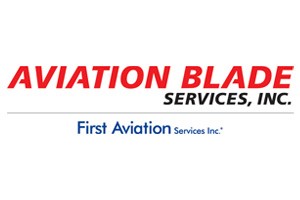 |
Aviation Blade Services, Inc., based in Kissimmee, Florida, is best known for its expertise in Sikorsky and Westland Sea King rotor blades. With the most extensive library of Sikorsky rotor blade maintenance data outside of Sikorsky, ABS is the world’s premier repair facility for Sikorsky Main and Tail rotor blades. The company’s experience, knowledge and support for these rotor blades is unmatched. Learn more at www.absblade.com. |
Final Documents/Your Two Cents
This list includes Federal Register publications, such as final rules, Advisory Circulars and policy statements, as well as proposed rules and policies of interest to ARSA members.
Conference Corner
Register Now
March 8-11, 2022
Registration | Information
Arlington, Virginia and Washington, D.C. with Livestream Options for Online Participants
Experience the maintenance community’s premier event. Join ARSA members and invited guests from around the world to engage governments, network with peers and improve the state of the aviation world.
Sponsoring Conference Success
Thank you to the 19 organizations that have committed to supporting the maintenance community’s premier substantive event. From congressional directories to meals to livestream platforms, these companies have invested in every element of the Conference’s success.
To learn more about a sponsor, click its logo. To benefit from their commitment, register now.
Platinum
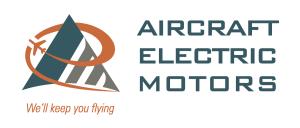 |
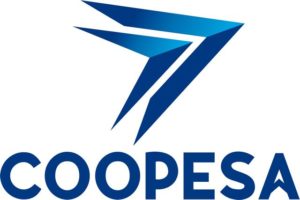 |
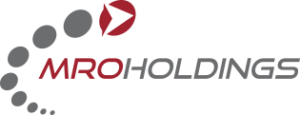 |
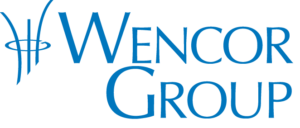 |
Gold
Silver
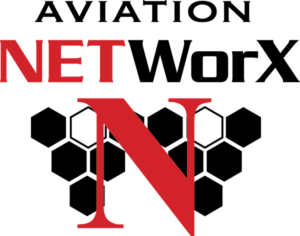 |
Supporter
Contributor
See the Agenda
The 2022 Annual Conference agenda is shaping into familiar form: four days of executive branch briefings, grassroots legislative advocacy and discussions focused on international regulatory compliance.
Use the following menus to review the agenda as well as other information about the Conference. Seen enough? Register now.
Executive to Executive Briefings: Tuesday, March 17, 2026
Participation by industry executives with senior executive branch officials is limited to annual conference sponsors at the Administratium, Platinum, Gold, or Silver levels. In past years, meeting participants included representatives from the U.S. Departments of Commerce, Defense, Labor, State, and Transportation as well as the fellow trade associations and industry interest groups.Legislative Day: Wednesday, March 18, 2026
The day dedicated to educating both the aviation maintenance industry and elected officials. Learn (or brush up) on what ARSA does and what you can do so you're ready for afternoon visits with targeted Capitol Hill legislators and staff.Annual Repair Symposium: Thursday, March 19, 2026
The centerpiece of Conference week, ARSA convenes a full day of substantive panel discussions covering key regulatory compliance and business issues. After the keynote address, regulators from across the world join the full-morning "Opening Salvo" conversation, followed by lunch and an afternoon of practical regulatory and business discussion.Member Day: Friday, March 20, 2026
ARSA's leadership briefs members on the state of the association as well as goals and priorities for the coming year. Participants then close out the event by participating in breakout and/or training sessions focused on key aerospace topics. The Conference ends by 12:00 p.m. EDT.In-Person
All substantive and social activities were hosted at the Ritz-Carlton, Pentagon City in Arlington, Virginia. Legislative Day participants will head to Capitol Hill for meetings with congressional offices as appropriate.
Livestream
The majority of Conference events will be available to livestream viewers via a Vimeo web-player embedded into a page on ARSA.org. All in-person registrants will be able to name a "Conference Ambassador" as a contact to access the livestream and bring the event back to their home facilities.
Pricing
| Executive to Executive Briefings – Tuesday, March 17 | ||||
| Open to Administratium, Platinum, Gold, and Silver-level sponsors.(1) | ||||
| Legislative Day – Wednesday, March 18 | ||||
| Members | Non-Members | |||
| In Person or Livestream | $450 | $750 | ||
| Symposium – Thursday, March 19 | ||||
| In Person or Livestream(2) | $925 | $1,500 | ||
| Legislative Day & Symposium Bundle | ||||
| In Person or Livestream | $1,250 | $2,000 | ||
| The Super Bundle (Silver Sponsorship, E2E, Legislative Day, & Symposium) | ||||
| In Person or Livestream | $4,200 | $4,500 | ||
| Member Meeting & Training/Breakouts – Friday, March 20 | ||||
| In-person | Free with Symposium registration. | |||
| Livestream | ||||
(2) Registration fees may be waived for government personnel, members of the media, speakers, and other support personnel or special guests upon approval by the ARSA event team.
Administratium – $15,000
What is Administratium? An element aerospace professionals see every day (click here to learn more). Notation in all publicity, marketing and periodicals (e.g., the hotline, Dispatch, ARSA team email signatures, conference attendee contact list, specific email alerts to association contacts), recognition in event materials and from the podium, specific thank you in ARSA periodicals, additional advertising placement via ARSA’s communications, complimentary registrations for three (3) participants in the Executive to Executive Briefings as well as three (3) in Legislative Day, and free livestream access for personnel unable to attend in person. At the Administratium Level, sponsors may select one of the following* to specifically support (please note the list in this document does not reflect current availability):- Annual Repair Symposium – Ice Breaker Reception
- Annual Repair Symposium – Thursday Happy Hour
- General Sponsorship
Platinum – $10,000
Notation in all publicity, marketing and periodicals (e.g., the hotline, Dispatch, ARSA team email signatures, conference attendee contact list, specific email alerts to association contacts), recognition in event materials and from the podium, specific thank you in ARSA periodicals, complimentary registrations for three (3) participants in the Executive to Executive Briefings as well as three (3) in Legislative Day, and free livestream access for personnel unable to attend in person. At the Platinum Level, sponsors may select one of the following to specifically support (may not reflect current availability for 2025):- Online Conference Experience
- Executive to Executive Briefings
- Legislative Day – All Day
- Congressional Directories/Resources
- General Sponsorship
2025 Platinum Sponsors
 |
 |
 |
Gold – $7,500
Notation in all publicity, marketing and periodicals (e.g., the hotline, Dispatch, ARSA team email signatures, conference attendee contact list, specific email alerts to association contacts), recognition in event materials and from the podium, specific thank you in ARSA periodicals, complimentary registrations for two (2) participants in the Executive to Executive Briefings as well as two (2) in Legislative Day, and free livestream access for personnel unable to attend in person. At the Gold Level, sponsors may select one of the following to specifically support (may not reflect current availability for 2025):- Legislative Priorities Brochures/Resources
- Digital Companion/Electronic Materials
- Legislative Day – Continental Breakfast
- Legislative Day – Congressional Briefing and Luncheon
- Annual Repair Symposium – Continental Breakfast
- Annual Repair Symposium – Luncheon with Special Guest
- Nametag Lanyards
- Hotel Room Keys
- General Sponsorship
2025 Gold Sponsors
Silver – $3,500
Notation in all publicity, marketing, and periodicals (e.g., the hotline, Dispatch, ARSA team email signatures, conference attendee contact list, specific email alerts to association contacts), recognition in event materials and from the podium, complimentary registrations for one (1) participant in the Executive-to-Executive Briefings as well as one (1) in Legislative Day. At the Silver Level, sponsors may select one of the following to specifically support (may not reflect current availability for 2024):- Annual Repair Symposium – Coffee Break (5)
- General Sponsorship
2025 Silver Sponsors
Supporter – $2,500
Notation in all publicity, marketing, and periodicals (e.g., the hotline, Dispatch, ARSA team email signatures, specific email alerts to association contacts), and recognition in event materials and from the podium.Contributor – $500 to $2,499 (or equivalent support)
Notation in some publicity, marketing, and periodicals (e.g., the hotline, Dispatch), and recognition in event materials and from the podium.
2025 Contributor
ARSA has reserved a block of rooms for Conference participants at the Ritz-Carlton, Pentagon City in Arlington, Virginia. The hotel hosts most of the activities related to the ARSA Conference and is convenient to the Metro as well as Washington Reagan National Airport (DCA). To reserve a room within the block, utilize the link/url below. For assistance, call 703.415.5000. Conference reservations must be booked by Friday, Feb. 20, 2026.
https://book.passkey.com/go/ARSAAnnualConf2026
The Leo Weston Award for Excellence in Government Service
First bestowed on Leo Weston himself in 2005, the Weston award honors an instrumental figure in ARSA's birth by recognizing individuals who embody his commitment to the industry's safety and success. The symposium provides a venue for association members and invited guests from around the world to network and discuss issues that matter to the aviation maintenance industry. It is the perfect time to respect the history of the repair station community and honor the good works of those who support it.
Click here to learn more about Leo, the award bearing his name, and those who have received it.The Legislative Leadership Award
The association regularly recognizes members of Congress who have provided outstanding support to the aviation maintenance community by supporting policies beneficial to the industry. Honorees have each been key in moving forward specific legislation advancing priorities championed by ARSA on behalf of its members.
Click here to see past updates regarding Legislative Leadership Award recipients.The "Golden Shovel" Award
From time to time, ARSA recognizes individuals – usually at the time of their retirement – who have spent their careers in steadfast devotion to good business, good safety, and good oversight. In the colorful illustration of Executive Director Sarah MacLeod, these professionals have spent their lives shoveling against the tide of government bureaucracy; their achievement in never giving up is acknowledged through the "Golden Shovel Award."
Click here to learn more about the "Shovel" and see who has received it.Photos
ARSA has created a Google Album including photos taken during the 2025 Annual Conference, which allows participants to share their own photos (Sharing event photos constitutes consenting to their use/distribution in association with Conference-related publicity for this or future events, at ARSA’s discretion). To see the album, click here.Recordings
The following excerpts were provided to ARSA members via the hotline newsletter. They are included here as examples of the event's content.
Legislative Day Briefing – Market Report ReleaseLeaders from Oliver Wyman Vector presented report findings to Legislative Day participants on March 19, illustrating the current and projected states of the North American and global aircraft fleets and related impacts on maintenance demand. This data illustrates the current state of the aerospace marketplace and provides insight for future business considerations. The briefing is provided in its entirety for the benefit of members.
Symposium Briefing – What Has ARSA Done LatelyThe brief session includes updates about key work performed by the association in the last year as well as instruction for maximizing membership value while helping move the enterprise forward.
Symposium Q&A – Foreign D&A TestingThe three-hour “Opening Salvo” is unlike anything else in the aerospace event cycle: Four regulatory authorities from three continents providing updates and engaging in substantive discussion with attendees. In this clip from the 2025 panel, a participant question produces more than ten minutes of discussion from the panelists.
Weston Award Recognizes Crowley’s Commitment to LearningOn March 20, ARSA recognized Jerry Crowley with its Leo Weston Award for Excellence in Government Service. Crowley is a long time FAA aviation safety inspector who was a professional protégé and friend to the award’s namesake.
Book Your Room
A block of rooms is available at preferred price for Annual Conference attendees at the Ritz-Carlton, Pentagon City in Arlington, Virginia. The hotel will host most Conference activities and is convenient to the Metro as well as Washington Reagan National Airport (DCA). The deadline for reservations is Feb. 12.
Annual Meeting Notice
The ARSA Annual Member Meeting is held in conjunction with the Annual Conference; this year it will take place during the Breakfast and Annual Report on Friday, March 11 at 8:00 a.m.
ARSA leadership will address members regarding the state of the association. Attendees are welcomed and encouraged to raise matters relevant to ARSA and the industry it represents.
If you are unable to attend – conference registration is open – but would like to submit comments/questions to ARSA’s board, please do so via the mechanisms available on arsa.org/contact.
Legal Brief
Editor’s note: This material is provided as a service to association members for educational and informational purposes only. It does not constitute legal or professional advice and is not privileged or confidential.
Layman Lawyer – Keep Compliant and Carry On
By Brett Levanto, Vice President of Operations
In October 2021, the FAA issued Notice 8900.603 updating agency policy to better define how and when it closes regulatory Compliance Actions.
As described by documentation for the FAA’s Compliance Program, such an action is “the FAA’s non-enforcement method to correct unintentional deviations or noncompliance arising from flawed systems and procedures, simple mistakes, lack of understanding, or diminished skills.” In short, these are tools for avoiding enforcement action in lieu of quick and safe correction to a deviation.
Those following this “layman lawyer” series will see fertile ground for analysis in such a release: Managing the FAA’s parameters for any interaction with certificate holders is key to maintaining a professional and predictable relationship with the regulator. That review will start here by outlining the program under which those Compliance Actions are imposed.
In 2018, the FAA matured what had previously been its compliance “philosophy” into a “program.” The upgrade in terminology at least earned a full website-and-brochure treatment (www.faa.gov/about/initiatives/cp), making official what the agency called its installation of “just culture.” Such a culture purports to have “an expectation of, and an appreciation for, self-disclosure of errors.” According to the underlying “philosophy” introduced in 2016, by diverting from an enforcement-first perspective, inspectors can help to foster greater safety through openness to recognizing inadvertent or quickly correctable non-compliance.
ARSA responded at the time to a fundamental problem with the “philosophy” that had persisted through the “program.” In a letter to then-Chief Counsel Arjun Garg, the association noted compliance “begins and ends with the plain language of the rules,” quoting the association’s welcome message to Administrator Steve Dickson (read a public version via the August 2019 Aviation Week/MRO Network Editorial “Dear Mr. Administrator”). Recognizing this principle and citing an Oct. 9, 2018 Executive Order “Promoting the Rule of Law Through Improved Agency Guidance Documents,” the letter to Garg sought immediate action related to a pair of FAA orders.
One was Order 8000.373A, which set forth the Compliance Program’s overarching guidance. The document purported to provide methods for the agency and the industry to work through compliance issues that do not pose a risk to the aviation safety system. As the language stands, agency personnel can base, and are basing, decisions regarding what constitutes “intentional or reckless” deviations from the legal standard, that is, the plain language of a regulation, upon guidance, which unfortunately does not always comport with the rules.
The legal standards matter to our consideration of Compliance Actions, which as explained by the October notice must be validated by an inspector before being closed satisfactorily. Should a certificate holder allow an inspector to define an action based on inaccurate “guidance”, validation can be elusive.
Stay tuned to the Layman Lawyer for continued review of the FAA’s Compliance Program.
Help continue this discussion. Submit your “layman lawyer” experiences or questions via arsa.org/contact.
ARSA on the Hill
Maintenance Manuals, Workforce, Reauthorization Ramp-up
By Christian A. Klein, Executive Vice President
With 2022 underway, Congress is picking up where it left off in December, with new distractions added to the mix.
Four months into Fiscal Year 2022, appropriations for the current year are still unfinished and the short-term extension expires on Feb. 18. Passing funding legislation is absorbing bandwidth at the same time lawmakers should be starting the 2023 appropriations process.
2022 is an election year which can make Congress even more dysfunctional as members of both parties jockey to score political points. Democrats in fear of losing the House and Senate majority will be working hard to pass parts of their agenda before the election. Whether the Biden administration will push its “Build Back Better” plan hard remains to be seen; it can take a backseat to replacing Supreme Court Justice Stephen Breyer. The President’s push to name a successor before the end of February throws a new hot potato to a bitterly divided Senate.
Here’s what ARSA focuses on:
Maintenance Manuals
On Dec. 27, 2021, an ARSA-led coalition of 14 aviation organizations asked FAA Administrator Steve Dickson to assign a maintenance manual task to the agency’s Aviation Rulemaking Advisory Committee (ARAC).
ARSA and its allies have asked that ARAC review FAA’s past and current instructions for continued airworthiness (ICA) regulations and policies and make recommendations to clarify rights and responsibilities. ARSA is educating lawmakers on Capitol Hill about the issue with the goal of exerting pressure on the FAA to assign the task and provide the agency and industry another tool to resolve longstanding concerns about FAA’s inconsistent application and enforcement.
Contact your representatives and senators in support of this effort using ARSA’s Legislative Action Center (sponsored by Aircraft Electric Motors).
Workforce
The maintenance industry’s technician shortage has been exacerbated by workforce departures during the pandemic. ARSA continues to lobby Congress for assistance recruiting and training the industry’s next generation of technical workers.
One priority is securing money for the new aviation maintenance grant programs created by Sec. 625 of the 2018 FAA bill. (Recipients of the first round of grant funding were recently announced.) While Congress has fully funded the program at $5 million for fiscal years (FY) 2020 and 2021, lawmakers have not yet finalized this year’s appropriations (see above). ARSA and its coalition partners are focused on making sure the program gets the necessary resources for both the current year and FY 2023.
Another ARSA workforce priority is the National Center for the Advancement of Aviation (NCAA) Act (H.R. 3482/S. 1752). The bipartisan bill, which has been endorsed by more than a hundred aviation organizations, would create a new federally chartered entity to facilitate collaboration and cooperation among and between all sectors of aviation and aerospace stakeholders and related partners. Workforce is central to the proposed NCAA’s stated mission:
- The development and sustainability of a well-qualified, well-trained civil and military aviation and aerospace workforce.
- The conduct of research and development of new aviation and aerospace training materials and products.
- The coordination of the dissemination of grants for the development of aviation and aerospace oriented high school STEM education curriculum.
- The facilitation of collaboration between institutions of higher education or other research institutions engaged in aviation, aerospace or related research or technical development.
While it’s uncertain whether the NCAA bill will move on its own this year, the more support built, the more likely NCAA is to be included in next year’s FAA reauthorization. Please use ARSA’s Legislative Action Center to send a message urging your representatives to cosponsor the bill.
FAA Reauthorization Ramp-up
The current five-year FAA authorizing law expires on Oct. 1, 2023. The reauthorization process is an important opportunity to shape FAA’s priorities. Over the coming months, House and Senate aviation subcommittee staff will begin gathering recommendations from lawmakers and the public. One ARSA priority is significantly increasing funding for the Sec. 625 technician and pilot workforce grant programs created by the 2018 FAA law. During the first funding round, FAA received more than 350 applications for just $10 million in available money.
In recent years, ARSA has proposed ways to enhance transparency and due process at the FAA. While some of those recommendations have been included in Senator Jim Inhofe’s (R-Okla.) PLANE Act (S. 2453), they have not yet been enacted into law and may be appropriate for inclusion in the next FAA bill.
As ARSA fleshes out its reauthorization agenda, we welcome input from members. If you have ideas, let us know.
|
Want to Learn More About ARSA PAC? ARSA’s Political Action Committee helps elect congressional candidates who share ARSA’s commitment to better regulation and a strong aviation maintenance sector. In this critical election year, ARSA PAC has never been more important. But ARSA is prohibited from sending PAC information to members who haven’t opted in to receive it. Please take a second to give us prior approval to talk to you about ARSA PAC. Doing so in no way obligates you to support PAC. It just opens the lines of communication. Click here to give ARSA your consent today. |
Make Your Voice Heard at ARSA Legislative Day
ARSA’s Legislative Day on March 9 is your best opportunity to engage personally with lawmakers.
The event, which is taking place in conjunction with ARSA’s 2022 Annual Conference, will feature briefings by ARSA team members, representatives from allied organizations, and House and Senate aviation staff. After lunch, ARSA members will head to the Hill for individual meetings with their congressional representatives. Register now to join us and be on the lookout for more information in the weeks ahead.
Regulatory Update
Kissing Your SISter
The European Union Aviation Safety Agency (EASA) recently conducted Sampling Inspection System (SIS) visits in the United States. SIS visits are part of the U.S.-EU Maintenance Annex Guidance (MAG), and are a method by which the bilateral partners verify oversight of each other to the requirements of the MAG.
Reports that the SIS visits are resulting in findings directly against U.S. repair stations are troubling. In recent SIS visits, accusations that the MAG does not allow U.S. repair stations to use ARSA’s E-100 form to document a 14 CFR part 43 inspection of new parts that are not accompanied by Form 8130-3 issued by the production approval holder (or an FAA-designee) were brought to ARSA’s attention.
In 2016, the FAA provided ARSA a letter stating that the proper use of ARSA’s E-100 form, in combination with an 8130-3 (with a maintenance approval for return to service) complies with FAA regulations and the MAG. While the E-100 issue is being discussed yet again by the two authorities, we wanted to provide an understanding of how the SIS visits are supposed to work (see a complete review of the form’s functions in this edition of the hotline).
Bilateral relationships between civil aviation authorities (CAAs) are based on the notion of “trust but verify.” Before signing a bilateral agreement, and technical implementation procedures or maintenance implementation procedures or maintenance annex guidance, authorities audit each other’s legal system, regulations, and surveillance program to ensure the two systems of governance result in equivalent safety outcomes. Significant regulatory differences are addressed through the issuance of Special Conditions. Once the agreements are in effect, the authorities monitor each other’s oversight of the Special Conditions to maintain confidence in the equivalent level of safety and control.
In addition to the SIS visits (which are authorized by section 2.2. of the U.S./EU MAG), the signatories notify one another of regulatory changes, provide training to inspectors overseeing facilities operating under the MAG, and follow specific procedures to resolve differences in interpretation.
SIS visits are audits of the CAA’s oversight, not of the repair station or approved maintenance provider. Under the FAA/EASA MAG, only in the case of a Level 1 finding that lowers the safety standard and seriously impacts flight safety is the visiting CAA (in this case EASA) authorized to act directly. In the case of visits from EASA to monitor the FAA’s oversight, the MAG’s sec. 2.2.7.3 clearly states that, “For all other findings raised in the [CAA] visit report, [Approved Maintenance Organization] follow-up of the findings shall be accomplished by the [Flight Standards Office] and reported to EASA for closure with a copy sent to AFS-300.” In other words, corrective action on the part of the U.S. repair station after an EASA visit and finding is in the hands of the FAA, which must advise EASA when appropriate actions to resolve an issue have been completed.
On the other hand, if the SIS visit results in an issue of interpretation, the MAG sets out a process by which the matter can be elevated through the chain of command, meaning informal resolution by the respective Directors of Flight Standards or their designees, elevation to the Joint Maintenance Coordination Board (JMCB) and, if necessary, to the Bilateral Oversight Board (BOB).
In the absence of a level 1 finding, U.S. repair stations should understand the SIS visits do not impose any immediate obligation to change their practices unless the two authorities agree on the appropriate resolution in accordance with the MAG’s Special Conditions. And even when that is the case, the process by which corrective action and follow up is achieved resides with the host country’s CAA, in this case the FAA.
In cases where there is a disagreement between the agencies on how the Special Conditions should be interpreted, the MAG spells out a clear process whereby the issue can be resolved in an orderly, rather than precipitous, manner. The resolution is not to create a finding against the repair station or approved maintenance organization.
If you have faced issues related to a SIS visit, contact ARSA.
Training
Make ARSA Training Work
ARSA’s online training program represents its most-valuable benefit to the aviation industry: knowledge gained through training and experience. The association’s team has turned its decades of work on behalf of aviation maintenance into more than 80 hours of on-demand content.
While sessions are available for registration at any time – ARSA member discounts available – companies can also incorporate the association’s training into their regular programs:
(1) Subscription. Make up-front, bulk purchases of training hours. The details of each subscription can be customized, including focus on specific subject areas (e.g., human factors) or options for specially-priced session access after the initial hours have been used.
(2) “Championing” a session. Guarantee a certain number of attendees for training in a particular topic that will also be made available for general registration. Variations include open registration for a live session (i.e., company personnel participate at the same time as general registrants) or a company-specific live event for which a recorded version (not including any company-specific information) is made available for on-demand registration.
(3) Tailored training. Contract ARSA’s management firm Obadal, Filler, MacLeod & Klein, P.L.C. to produce or modify training specific to your organization. The team can then re-record it (or offer it as a separate live session) for ARSA’s training program. Tailored programs are priced differently from ARSA’s hourly rate and are administered by OFM&K, which allows for a client engagement and related attorney-client privilege for all discussion.
For more information about ARSA’s training program, review the menus below. If you have questions or would like to learn more about ways to integrate ARSA training into your own program, contact Vice President of Operations Brett Levanto (brett.levanto@arsa.org).
Government employees: Contact ARSA directly for auditing opportunities.
Registration: Registration and payment may be processed directly through the training platform/course catalog (free account creation required).
Technical questions and assistance: Click here for FAQ and technical support from training platform vendor.
Refunds: No refunds are granted for ARSA training sessions. When classes are canceled, registrants can choose from future courses of equal value. If a registrant is unable to attend a live session, their registration allows access to the on-demand, recorded version of the webinar.
IA Approval: A number of ARSA training sessions have been accepted for Inspection Authorization (IA) renewal credit. These sessions are denoted on their registration page with their FAA course acceptance number (in red).
Benefits: Registration for an ARSA-provided training session includes:
- Access to the live class session on the scheduled date (if applicable).
- Unlimited access to the on-demand, recorded version of the webinar to be made available after the live session is complete (or at time of purchase, for on-demand classes).
- A copy of the presentation and all reference material with links to relevant resources and citations.
- A certificate* upon completion of the session as well as any required test material.
OFM&K Training Portal: All of ARSA's training sessions are provided through OFM&K's training portal. As the training provider of choice for ARSA and a trusted resource for the aviation community, the firm's training materials represent a vital tool for entities pursuing regulatory compliance and business success. All of the courses are administered via PotomacLaw.InreachCE.com, which is not part of ARSA's website.
Complying with Part 145 – “Soup to Nuts” (Four Hours) Instructor: Sarah MacLeod Description: Specially recorded with a hand-picked audience for interactive discussion, this session thoroughly reviews 14 CFR part 145, discusses the application of the rule and overviews some practical implications of obtaining and maintaining a repair station certificate. Pricing Note: This is a four-hour session and is $300 for members and $600 for non-members. Click here to register and get access for 90 days.
Sessions Accepted for IA Renewal Credit Eight of ARSA's on-demand training sessions have been accepted by the FAA for Inspection Authorization renewal credit under 14 CFR § 65.93. Each session is currently available for registration and immediate access:Click here to purchase all eight sessions (plus one required prerequisite) at a “bundled” discount – let ARSA take care of your IA renewal requirements this year. Click here to purchase all eight sessions (plus one required prerequisite) at a “bundled” discount.
Aircraft Parts
Audit Activism & Prophylactic Lawyering
Drug & Alcohol Testing
Human Factors
Instructions for Continued Airworthiness
Parts 21, 43, 65, 145 (and others)
Public Aircraft"Going Global" - International Regulatory Law
Grassroots Advocacy
Recordkeeping – "Finishing the Job with Proper Paperwork"
The Fourth Branch of Government (Administrative Agencies and Procedures)
Self Disclosure Programs and Practices
(1) Subscription. Make up-front, bulk purchases of training hours. The details of each subscription can be customized, including focus on specific subject areas (e.g., human factors) or options for specially-priced session access after the initial hours have been used.
(2) “Championing” a session. Guarantee a certain number of attendees for training in a particular topic that will also be made available for general registration. Variations include open registration for a live session (i.e., company personnel participate at the same time as general registrants) or a company-specific live event for which a recorded version (not including any company-specific information) is made available for on-demand registration.
(3) Tailored training. Contract ARSA's management firm Obadal, Filler, MacLeod & Klein, P.L.C. to produce or modify training specific to your organization. The team can then re-record it (or offer it as a separate live session) for ARSA’s training program. Tailored programs are priced differently from ARSA’s hourly rate and are administered by OFM&K, which allows for a client engagement and related attorney-client privilege for all discussion.
For more information about ARSA's training program, review the menus below. If you have questions or would like to learn more about ways to integrate ARSA training into your own program, contact Vice President of Operations Brett Levanto (brett.levanto@arsa.org).The association’s training program is provided through Obadal, Filler, MacLeod & Klein, P.L.C., the firm that manages ARSA. To go directly to OFM&K’s online training portal, visit potomaclaw.inreachce.com. To learn more about the association’s training program and see course availability, visit arsa.org/training.
What training do you need? Contact ARSA to let the association know and help get it developed.
The Nuts & Bolts of Giving Back
At the end of 2021, a group of aviation leaders personally invested in the future of the industry. After the Wings Club lost a scholarship sponsor, several past “Nuts and Bolts Award” winners – including ARSA Executive Director Sarah MacLeod – stepped up.
As a result of their action, the son of a deceased U.S. service member will be able to continue pursuing his own dream of flight as a professional pilot major at Middle Tennessee State University. Kristian Stanley was five years old when his father, Army Chief Warrant Officer 3 David Stanley, died in a helicopter crash. Now a sophomore in college, Kristian had already received assistance from the Children of Fallen Patriots and now has been directly supported by the aviation community he’s training to join.
The Nuts and Bolts Awards begin in 1967 when members of the (then) Air Transport Association Engineering and Maintenance Committee began recognizing leaders among their peers. The annual tradition continues through Airlines for America (A4A) and its Engineering, Maintenance and Materiel Council (EMMC), which recognizes two individuals each year for outstanding contributions to the airline industry over an extended period.
The EMMC selects award winners for both categories from a group of individuals whose extraordinary efforts have enabled them to achieve success and respect for their leadership, service and contributions in the airline industry’s engineering and maintenance fields. MacLeod was honored as a Nuts and Bolts awardee in 2011. She has been coordinating with other winners to marshal their collective interest in aviation’s future and become a career development resource for younger professionals.
Stay tuned for more updates from ARSA on this developing effort.
To see Kristian’s profile from Children of Fallen Patriots, click here.
To review a list of Nuts and Bolts Award winners, click here.
IA Renewal Credit Through ARSA
In early 2020, the FAA informed ARSA of a 24-month extension to the expiration dates for each of the association’s online training sessions found acceptable for Inspection Authorization renewal credit under 14 CFR § 65.93. The original eight IA renewal sessions produced by ARSA will now remain acceptable until 2023:
ICA – The Basics
IA Course Acceptance: C-IND-IM-170830-K-010-002
This session provides an overview of the regulatory basis for ICA, including what documents are considered ICA and the obligations of design approval holders to prepare, furnish and otherwise make them available under 14 CFR § 21.50(b). It also covers the related regulations that apply to operators and maintenance providers regarding the use of ICA and their availability. Finally, it shows how the FAA has interpreted some of the more important ICA requirements in Order 8110.54.
ICA – Case Study: Testing Your Knowledge
IA Course Acceptance: C-IND-IM-170830-K-010-001
This session tests the participants’ knowledge of the ICA regulations in Title 14 CFR and FAA guidance by presenting several hypothetical case studies. Each one will focus on one or more of the significant ICA regulatory principles.
Major/Minor – Major Pain Over a Minor Issue
IA Course Acceptance: C-IND-IM-170830-K-010-003
This session reviews the regulations that govern the terms “major” and “minor” in the world of civil aviation repairs and alterations. Learn the regulatory facts and how to train your FAA inspector so this minor issue doesn’t become a major pain in the derrière.
Part 21 – Overview
IA Course Acceptance: C-IND-IM-170830-K-010-004
This session provides an overview of the aviation safety regulations governing design and production of civil aviation products and articles as well as airworthiness certification of civil aircraft.
Part 65 – Getting a Mechanic’s Certificate
IA Course Acceptance: C-IND-IM-170830-K-010-005
This session reviews the requirements of 14 CFR part 65 subpart D, which concerns aviation mechanics. It walks through the requirements for an individual to apply for a mechanic’s certificate, then defines the privileges and limitations bestowed on that individual by his or her certificate. Finally, it covers the enhancements to a mechanic’s privileges produced by obtaining Inspection Authorization.
Recordkeeping for Mechanics
IA Course Acceptance: C-IND-IM-170830-K-010-006
This session defines the regulatory responsibilities of the operator versus the maintenance provider in creating and maintaining maintenance records, including how obligations can be shifted by contract, but not under aviation safety regulations. It also covers maintenance recordkeeping regulations; the documents essential to making airworthiness determinations.
Regulations Impacting the Purchase of Aircraft Parts
IA Course Acceptance: C-IND-IM-170830-K-010-007
This session reviews the civil aviation regulations in Title 14 Code of Federal Regulations that impact the purchase of civil aviation parts, as well as other requirements that should be considered.
What is “Acceptable to the Administrator”? – The Performance Rules of § 43.13
IA Course Acceptance: C-IND-IM-170830-K-010-008
This session provides an overview of the regulations that use the language “acceptable to” the Federal Aviation Administration and how to determine what makes something acceptable to the agency.
In addition to these eight sessions, ARSA has current FAA acceptance for 14 other hours of training from its Human Factors series.
Registration for an ARSA-provided training session includes:
- Unlimited access for 90 days to the recording made available after the live session is complete.
- A copy of the presentation and all reference material with links to relevant resources and citations.
- A certificate upon completion of the class, as well as any test material.
The association’s training program is provided through Obadal, Filler, MacLeod & Klein, P.L.C., the firm that manages ARSA. To go directly to OFM&K’s online training portal, visit PotomacLaw.inreachce.com. To learn more about the association’s training program and see course availability, visit arsa.org/training.
Regulatory Compliance Training
Test your knowledge of 14 CFR § 11.43, what to include in written rulemaking comments.
Click here to download the training sheet.
Membership
President’s Corner – New Invoice, Same Investment
If you’ve recently renewed your ARSA membership, you may have noticed a new invoice format, which now includes a separate line item for “annual lobbying fee.” When I saw my company’s Corporate Membership invoice, I asked the ARSA team what was new. Other than a redesigned form, I was told, “nothing.” The line item – and its value – has been part of the association’s good work on our behalf for years.
That work is worth a few minutes of discussion:
For more than a decade, 20 percent of every dues payment has supported ARSA’s lobbying efforts before the U.S. Congress. In recent years, the collective investment has paid off. It’s allowed ARSA to lead efforts on Capitol Hill addressing the technician shortage, with the new maintenance workforce grant program being just one example of its success.
More significantly the association influenced debate over COVID relief to great effect, securing EVERY repair station access to at least some federal money through the Paycheck Protection Program, the Payroll Support Program for airline contractors, the Aviation Manufacturing Jobs Protection Program and other supportive measures. In total, ARSA helped make billions of dollars available to our industry when we needed it the most.
Under federal law, trade association dues are generally deductible as a business expense, but the portion that pays for lobbying is not. Associations are required to inform members what portion of dues aren’t deductible. ARSA invoices have, for years, included language explaining 20 percent of each dues payment goes toward lobbying, and therefore is not deductible under federal law. The new “lobbying line item” is simply ARSA providing even more transparency and clarity about the portion of the dues that is not deductible.
Bottom line: Membership dues haven’t changed and neither has the portion directed towards the association’s lobbying efforts.
Another line item that will never change is ARSA’s commitment to serving as the international aviation maintenance industry’s voice before the American government…just as it does with regulators, the media and many other stakeholders the world over.
When your next dues invoice arrives, take a moment as you approve payment to reflect on many years of collective work. Thank you for investing in it – your membership helps ARSA do what it does for all of us.
Sincerely,
 |
Terrell Siegfried 2022 ARSA president | NORDAM assistant general counsel and corporate secretary |
Do You Know a “40 Under 40” AMT?
ARSA’s commitment to building the aviation maintenance workforce of the future means celebrating the excellence of the men and women who already keep the world safely in flight. The association encourages its members to celebrate outstanding personnel through Aircraft Maintenance Technology Magazine’s 2022 “40 under 40” Awards, which recognize young aviation professionals on whom the flying world will depend for decades.
Criteria for selection include job commitment, industry involvement and contribution, professional achievement and innovation. Anyone working in any aviation maintenance field who will be 39 years old or younger on March 30, 2022 is eligible for nomination. Winners will be featured in the magazine’s July/August issue and celebrated on AviationPros.com.
Click here to learn more and nominate someone today. The deadline for submissions is March 30, 2022.
Anyone submitting a nomination is encouraged to contact ARSA’s Vice President of Operations Brett Levanto, so the association can join AMT Magazine in celebrating the best of this community’s young talent.
“What we need is to do every single day what AMT Magazine is doing … show off what’s great about aviation,” Levanto said in 2019. “Whether it’s impressive people (hello NextGen honorees!), interesting challenges, advanced technology, worldwide travel opportunities, or the allure of really, really important work, there is so much in which we can take pride.”
Past NextGen awards…
Making Good
This year's AMT Magazine annual class of Next Gen Award winners includes young professionals from five ARSA member companies.
November 29, 2016
On Nov. 28, AMT Magazine announced its 2016 class of NextGen Award winners. For the second year, the publication honored up-and-coming talent by recognizing maintenance engineers, technicians and support staff under 40 years old.
The list includes eight winners from seven different ARSA member organizations:
- Kevin Easley, Maintenance Supervisor, AAR Aircraft Services
- Hilary Kerkstra, Turbine Engine Technician, Pratt & Whitney Engine Services
- Carolyn Rena Kincaid, Manager of Training and Records Dept., AAR Aircraft Services
- Joshua Krotec, Senior Vice President, First Aviation Services
- Tony Oggs, Field Service Lead Technician, StandardAero
- Josh Riehle, Director of Quality, HAECO Cabin Solutions
- John Wing, Program Manager, PEMCO World Air Services
- Xiang Yao, Lead Aviation Maintenance Technician, FedEx
“Taking pride in this group is easy,” said Brett Levanto, ARSA’s vice president of communications and 2015 NextGen honoree. “Every person – yes, even those whose employers aren’t ARSA members – represents the best in the aviation maintenance community. From diverse backgrounds, with different experiences and performing a wide range of needed tasks, each one keeps the world safely in flight. We can’t fly without them and we wouldn’t want to.”
Finding and retaining world class talent – like the names listed in AMT’s awards – has become a pressing challenge for repair stations and a key policy focus for the association. While celebrating the best and brightest is a great way to attract attention, ARSA also provides tools for building the aviation workforce of the future:
(1) Aerojobs.org. The web-based recruitment tool specifically targets individuals with the skills needed to maintain aircraft (regardless of what industry they’re in now).
(2) AVMRO.arsa.org. The industry’s information portal introduces the world of maintenance, repair and overhaul. The site has information useful to everyone from job seekers to the media to elected officials to nervous fliers.
(3) Propaganda. “You Can’t Fly Without Us,” a seven-minute documentary on the maintenance industry produced for public television. ARSA provides license for use of the film as an informational or recruitment tool. (Visit arsa.org/documentary to see how you can use the video.)
(4) Training. In addition to a growing library of on-demand recordings, live sessions are hosted weekly on regulatory compliance, government affairs, legal and business development topics. Everything you need to get better at your job and get ready for the next one. (Visit arsa.org/training for course information and to register.)
“While celebrating [the NextGen honorees’] hard work, let’s consider how to help them move ahead,” Levanto said, encouraging broader industry action. “Nurture their careers while attracting new applicants to work and learn alongside them.”
To see all of the winners, visit: www.aviationpros.com/article/12278511/2016-amt-next-gen-40-under-40-award-winners.
Are you from one of the organization's represented on the list of winners? Click here to contact ARSA to share how you're celebrating your young talent.
Welcome & Welcome Back – New & Renewing Members
ARSA’s members give the association life – its work on behalf of the maintenance community depends on the commitment of these organizations. Here’s to the companies that joined or renewed in January:
New Member
Derco Aerospace, Inc., R04
Renewing Members
AeroParts Manufacturing & Repair, Inc., R04, 2016
Aerospace Quality Research & Development 145, LLC, R01, 2006
AerSale Component Solutions, Inc., R03, 2013
Air-Cert, LLC, R01, 1990
Air Shunt Instruments, Inc., R02, 1999
Airborne Maintenance and Engineering Services, Inc., R06, 2010
Aircraft Component Repair, Inc., R03, 1987
Alirio Aircraft Services Inc. dba 24Jets, R01, 2019
Aviation Consultants, Inc. dba ACI Jet, R03, 2021
Barfield Precision Electronics, LLC, R04, 1996
Brothers Aviation Maintenance Services, Inc., R01, 2016
Carpe Diem Aviation Services of Missouri, Inc., R02, 2012
Colorado Northwestern Community College, EDU, 2021
Consolidated Turbine Specialists, LLC, R03, 2018
Corporate Service Supply & Manufacturing, Inc., R01, 2016
Delta TechOps Services Group, Corp, 2002
Embry-Riddle Aeronautical University, Inc., EDU, 2012
Evans Composites, Inc., R03, 2021
Federal Aerospace Institute LLC, EDU, 2021
First Class Air Repair, R02, 2016
Genesis Aviation, Inc., R04, 1994
Giles Group, Affil, 2013
IHI Corporation, R06, 2019
INAir Aviation Services Company, R02, 2003
LAUNCH Technical Workforce Solutions, LLC, R01, 2019
Ohlinger Industries, Inc., R04, 2006
Parker Lord , R04, 2002
Pem-Air, LLC, R01, 2021
Peninsula Avionics, Inc. , R01, 2021
Rapco, Inc., Assoc, 1990
Rotortech Services, Inc., R02, 2019
S.E.A.L. Aviation LLC, R03, 2014
SkyWest Airlines, Inc., Assoc, 2010
Southwest Turbine, Inc., R02, 2018
Tailwind Inspection, Inc., R01, 2006
Team J.A.S., Inc., R02, 2004
TMC Engine Center, Inc., R02, 2021
VSE Aviation Services, Inc., R03, 2006
Wencor, LLC, Corp, 2018
ARSA Member Survey Coming Soon
ARSA’s 2022 annual member survey invitation will be sent in February to the email address of every member primary contact. The message will be subjected “ARSA Member Survey Invitation” and come from arsa@arsa.org. Ensure the invitation makes it to your primary contact and that it gets the attention it deserves.
Survey responses are important. Not only will data help improve ARSA services and support its work – as it always does – it will also build the useful description of pandemic impacts and recovery efforts produced by members since 2020. Please help by keeping an eye out for the invitation and then submitting…or stimulating your primary contact to submit on your company’s behalf.
(If you don’t know who the primary contact is, or don’t think the invitation got through, we can help.)
A Member Asked…Exploratory NDI?
Q: Our repair station uses non-destructive testing for in-process inspections under a limited airframe rating; we do not have a separate limited rating for non-destructive testing.
We have a customer asking for an on-wing exploratory ultrasound to figure out what may be causing intermittent electrical issues with an aircraft. The customer believes that something has been knocked loose or a tool was left inside the wing and wants us to use ultrasound to determine if anything is even there and if so, exactly where it may be located. The make and model of the aircraft is not on our capability list, can we perform the scan without issuing a maintenance release?
A: Thank you for your honesty and desire to comply with the aviation safety regulations.
The FAA would no doubt consider the customer’s request as maintenance since its definition in 14 CFR § 1.1 includes the word “inspection.” It is not hard to see that the use of a non-destructive inspection method, technique, or practice on a civil aviation aircraft meets the definition of maintenance. When an action or task falls under the definition of maintenance in § 1.1, § 43.9 requires a maintenance entry and issuance of an approval for return to service (maintenance release).
It is ironic that something that is non-destructive cannot be used to investigate the need for “real” maintenance action. The owner is obviously looking for the safest, most efficient method for ensuring continued airworthiness. Unfortunately, ARSA can see the agency reading the regulations to require the repair station to have the appropriate rating to perform the action being requested.
Make ARSA’s Voice Your Own: Advertise
ARSA has a menu of advertising opportunities for arsa.org, the hotline and the ARSA Dispatch. Take advantage of these great opportunities today to showcase your company, a new product or event. For more information go to arsa.org/advertise.

Stand Up for ARSA
In order to provide world-class resources for its members, the association depends on the commitment of the aviation community. By sponsoring events and activities, supporters can help ARSA’s work on behalf of repair stations to endure.
Need a place to start? For information about opportunities, contact Vice President of Operations Brett Levanto (brett.levanto@arsa.org).
Resources
ARSA strives to provide resources to educate the general public about the work of the association’s member organizations; should you need to provide a quick reference or introductory overview to the global MRO industry, please utilize AVMRO.ARSA.org.
Anti-Viral Measures
For the use of its members and the larger aviation community, ARSA is maintaining this page as a resource for pandemic-related updates on policy initiatives and business needs. It is the association’s central point of communication on the topic.
Brexit
On June 23, 2016, citizens of the United Kingdom voted to withdraw from the European Union in a national referendum. Fifty-two percent of voters voted for the UK to “leave” the political and economic union joining it to 27 other member states.
Resources for Dealing with the Government
As a repair station, dealing with the government, particularly the Federal Aviation Administration (FAA) is inevitable. Building a good relationship with government officials in good times will help keep the bad times at bay.
Industry News Roundup
ARSA monitors media coverage on aviation maintenance to spread the word about the valuable role repair stations play globally by providing jobs and economic opportunities and in civic engagement. These are some of this month’s top stories highlighting the industry’s contributions. You can explore these stories through ARSA’s Dispatch news portal.
Industry Calendar
| Conference | Dates | Location |
| MRO Latin America | 2/9-10/2022 | Cancún, MX |
| MRO Middle East | 2/22-23/2022 | Dubai, UAE |
| HAI Heli-Expo | 3/7-10/2022 | Dallas, TX |
| ARSA Annual Conference | 3/8-11/2022 | Washington, DC |
| WAI Annual Women in Aviation Conference | 3/17-19/2022 | Nashville, TN |
| ATEC Annual Conference | 3/20-23/2022 | Fort Worth, TX |
| AEA International Convention and Trade Show | 3/28-31/2022 | New Orleans, LA |
| Purdue University National Aviation Symposium | 4/6-8/2022 | West Lafayette, IN |
| ABACE | 4/12-14/2022 | Shanghai |
| MRO Americas | 4/26-28/2022 | Dallas, TX |
| NBAA Maintenance Conference | 5/3-5/2022 | San Antonio, TX |
| EBAA-EBACE2022 | 5/23-25/2022 | Geneva, Switzerland |
| MRO BEER | 6/15-16/2022 | Istanbul, Turkey |
| MRO Asia-Pacific | 9/20-22/2022 | Singapore |
| NBAA Business Aviation Convention & Exhibition (NBAA-BACE) | 10/18-20/2022 | San Antonio, TX |
| EASA Rotorcraft and VTOL Symposium | 11/16-18/2022 | Koelnmesse, Germany |
the hotline is the monthly publication of the Aeronautical Repair Station Association (ARSA), the not-for-profit international trade association for certificated repair stations. It is for the exclusive use of ARSA members and federal employees on the ARSA mailing list. For a membership application, please call 703.739.9543 or visit arsa.org/membership/join. For information about previous editions, submit a request through arsa.org/contact. This material is provided for educational and informational purposes only. It does not constitute legal, consulting, tax or any other type of professional advice. Law, regulations, guidance and government policies change frequently. While ARSA updates this material, we do not guarantee its accuracy. In addition, the application of this material to a particular situation is always dependent on the facts and circumstances involved. The use of this material is therefore at your own risk. All content in the hotline, except where indicated otherwise, is the property of ARSA. This content may not be reproduced, distributed or displayed, nor may derivatives or presentations be created from it in whole or in part, in any manner without the prior written consent of ARSA. ARSA grants its members a non-exclusive license to reproduce the content of the hotline. Employees of member organizations are the only parties authorized to receive a duplicate of the hotline. ARSA reserves all remaining rights and will use any means necessary to protect its intellectual property.
© 2022 Aeronautical Repair Station Association








